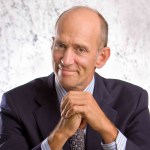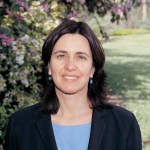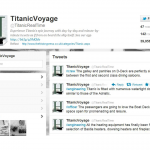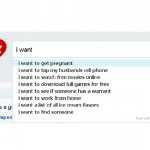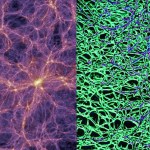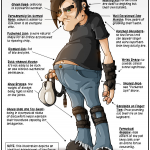Internet
A characteristic of real doctors and real health care providers is that they usually don’t sell the drugs and remedies that they recommend. Indeed, physicians are generally not allowed to in most states, as it’s considered a conflict of interest. Also, the Stark Law forbids physician self-referral, which is the referral of a patient to a medical facility in which that physician has a financial interest, be it ownership, investment, or a structured compensation arrangement. The reason why it’s considered unethical for physicians to sell the drugs or treatments they recommend or to self-refer…
My 2006 smartphone, a Qtek 9100
On 2 February 2006 I took delivery of my first smartphone, or handdator as I called it in my diary – “hand computer”. On the following day I got the machine on-line. It was a Qtek 9100, with a slide-out mechanical keyboard that I still really miss, a tiny screen, a stylus and a crappy camera. Since then I've had portable Internet access.
I was already a self-described “net head”, and a particular reason for me to get a smartphone was that I'd started blogging a few weeks previously: I wanted to be able to post no matter where I was. On 8 February, for…
The Weizmann Wave has been a bit dormant lately for various reasons, including the fact that we have been getting ready to launch our new website (same address, same content, slightly different look).
While you eagerly await the new site, here is a quiz we put on Facebook to see if anyone has been following our research news over the past year.
Also, don’t forget to check out Cell Biology by the Numbers, featuring the best picks of the BioNumbers site, edited by our own Prof. Ron Milo, together with Prof. Rob Phillips of CalTech and illustrated by Nigel Orme. Start browsing and you’ll be…
This post was co-authored by Ali Arab, Ph.D., an assistant professor of statistics at Georgetown University.
We are living in a global society driven by innovation, creativity and entrepreneurship. Success depends upon free access to information and unfettered research by scholars. Yet targeted academic boycotts are increasingly common, throwing more and more roadblocks on the way to progress.
Earlier in May 2013, the decision by the world-renowned British cosmologist Stephen Hawking to withdraw from a major academic conference in Israel reignited discussions among scholars on whether or…
Prof. Shafi Goldwasser, who is at both the Weizmann Institute and MIT, will receive the 2012 A.M. Turing Award, together with Prof. Silvio Micali of MIT. Goldwasser is only the third woman to receive the Award since its inception in 1966, and she is the third faculty member of the Weizmann Institute to receive what is considered to be the “Nobel Prize in computing.”
Goldwasser and Micali’s work in the 1980s laid the foundations of modern cryptography – the science that, among other things, keeps your electronic transactions secure.
The basis of their work is a series of riffs on the…
I am having a conversation with my friend, Pat. We are talking about the way we talk when we have a chance to spend some time, or the way our emails seem to go.
“I tire of being asked what I think about something only to have the conversation derailed at the first ‘bump’ in my logic, at the first self-contradiction,” Pat says, of life in general.
My response: “I savor your contradictions. It's my desire to explore them with you and to experience the change that happens when you wrestle with them.”
“Yes, I think you get it. How refreshing.”
As you can see, Pat and I have a deeply meaningful…
Why is it after a three day weekend, it always feels as though I have to "catch up"? After all, it's only one day more than the average weekend, and I didn't really do anything that different. A little yard work, out to dinner, a bit of grant writing, a bit of chilling, that's it. Maybe it's because pseudoscience and quackery never rest, while, my never-sleeping, computer-inspired moniker notwithstanding, I do. I have to, particularly as age creeps up on me. In any case, right before the Labor Day weekend, I felt a disturbance in the antivaccine crankosphere. It began Wednesday, with a post…
William Gibson, first in his novel Burning Chrome and then later in the seminal Neuromancer, both coined and defined "cyberspace" as "a consensual hallucination experienced daily by billions of legitimate operators." His novels predate the universal adoption of the World Wide Web as a communication matrix, and his psychedelic fantasy of cyberspace–a kind of semantic space navigated by users in virtual-reality, where information takes form as navigable structures–is not quite (yet) our web, but he was correct in his estimation of the network as a hallucination.
Most of us know, on some…
What would we do without the Internet?
It's become so necessary, so pervasive, so utterly all-enveloping that it's hard to imagine a world without it. Given how much it pervades everything these days, it's easy to forget that it wasn't that long ago that the Internet was primarily the domain of universities and large research groups. Indeed, the Internet hasn't really been widely and easily available to the average citizen for very long at all. Go back 20 years, and most people didn't have it. For example, Netscape Navigator, the popular browser that made the Internet accessible, wasn't…
Six years ago today, Jack Dorsey sent the first Tweet. Twitter records events in real time. It can also bring history back to life, in a clever way.
What a wonderful way to learn, and remember, history! Join me on the venture - Titanic begins its maiden voyage on April 10, 1912 - I mean, 2012.
Some of my favorite Titanic Tweets:
#captain Titanic is getting a lot of media attention, we must ensure that she is seen in the best possible light.
#crew Jumping into those waters even in a lifebelt will still result in death. Still, it won't happen...
#engineering Titanic is fitted with four…
Could ask.com provide a snapshot of our collective inquiring minds?
Here's a sample of this evening's "snapshot." What does it say about us?
The "suggestions," based simply on typing "I want" or "why" reveal an interesting algorithm - can any computer scientists comment? I do wonder who is asking some of those questions!
I've opted to move this blog to my own domain at http://www.isisthescientist.com.
I look forward to seeing some of you there. My sincerest thanks and best wishes to ScienceBlogs. And now, onward...
Last May I heaved myself out of bed a little before 5am so I could undertake a mammoth 12 hour round trip to that pantheon of industrial decay, Rotherham. What did the home of Jive Bunny and the Chuckle Brothers have to entice me on such a journey? Why, only Science World 2011, Fisher Scientific's annual trade fair. And their keynote speaker for the day, the Baroness. No, not that Baroness. I'm talking about Professor Susan Greenfield, who has made something of a name for herself with her theories about the effects of the internet on the brain. Namely, that the pervasiveness of digital…
Fourteen year old internet sensation Rebecca Black just released a follow up video "My Moment" after her debut of "Friday" that went viral with more than 167 million views. Attention at this scale landed her a spot on the Tonight Show with Jay Leno and a music video with Katy Perry, "Last Friday Night".
Such opportunities for seemingly instant fame can affect these teens, and pre-teens, in a profound way: IRL (In Real Life)...
Rebecca Black has had to endure the backlash of cyberbullying after her first video.
And Black, 13, certainly never anticipated the social media uproar, mainstream…
In the midst of all the chatter about Google+, many people seem to have ignored what this is really about: monetizing the cloud. What Google wants to do is make easy for you to store all of your documents and files on their servers, for which they will charge a small fee and/or use your registration and user habits for marketing purposes. Vincent Wong explains:
That toolbar is pretty important:
Apple is also trying to capitalize on the cloud.
The recent 'upgrade' of iTunes which can put all of your iTunes purchases on the cloud is the most obvious effort. But the iPad with its…
Mushrooms and their mycelium are quiet allies that are essential for our healthy existence. They are enigmatic, have a sense of humor, and socially as well as spiritually, bond together all that admire them. They have much to teach us.
-Paul Stamets
If the ego is not regularly and repeatedly dissolved in the unbounded hyperspace of the Transcendent Other, there will always be slow drift away from the sense of self a part of nature's larger whole.
-Terrence McKenna
A few weeks ago, I was sitting at my kitchen table, having coffee, when I suddenly noticed a new development in my…
Source.
Disagreements can arouse passions. The blogosphere can be a battlefield, with rapid fire blog posts and comments flying to and fro, sometimes helpful and thoughtful, sometimes off point unbridled ranting.
There's been a lot of discussion amongst my fellow Sciblings and our sponsors on this topic - dare I say it? It begins with the letter "C" - no, sorry, I can't use it - at least at this moment.
Here's a simple test: would you feel comfortable for your spouse or your employer to read what you posted?
There is an allure to venting, especially anonymously, because the reader - and…
When I read about Google, I often encounter a claim that Google's emphasis on engineering and mathy stuff has hobbled its ability to keep up in the social media world, and is in danger from Twitter and Facebook--although maybe Google+ will change that. It's usually something like this from the NY Times (italics mine):
But Google has been criticized for failing to understand the importance of social information on the Web until competitors like Facebook and Twitter had already leapt ahead.
Larry Page, Google's co-founder, regrets Google's failure to lead in this market and has spent time…
Liquid mountaineering.
Photo source.
Curiouser and curiouser...
Intrigued by your interests on ScienceBlogs, I did an experiment.
I took a look at what you were searching for a year ago, during the month of June 2010 and uncovered some curious things. As in my last post {Inquiring Readers Want to Know: "Why Is My Poop Green?}, I focused on your top 500 keywords (out of 343,309.) Lists such as these could provide endless possibilities of topics for blog posts. There's simply not enough time - anyone want to help write some of these?
My prof got run over by an iPod
Liquid mountaineering…
Photo source, San Jose Library Flickr Photostream.
So you're on ScienceBlogs. What interests you, what are you looking for? As a regular blogger, I wanted to know.
One way to explore these questions is to take a random sampling of keywords that readers have used to search this site. I selected the past month and scanned the top 500 terms (out of a total of 292,566 - but who's counting?)
During this past month, there were 3,860,385 visits at ScienceBlogs. I learned something interesting. Take a look at some of my favorites, listed below and ranked from high to low popularity: {I may…
